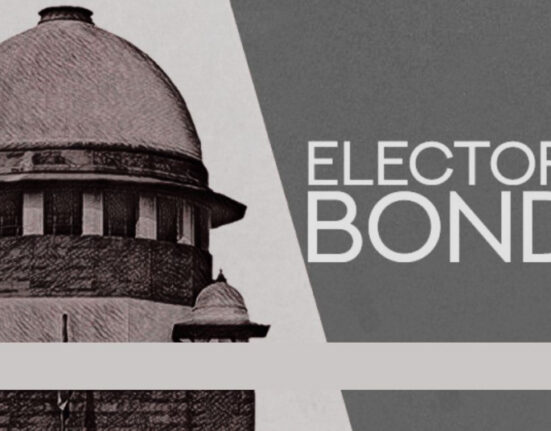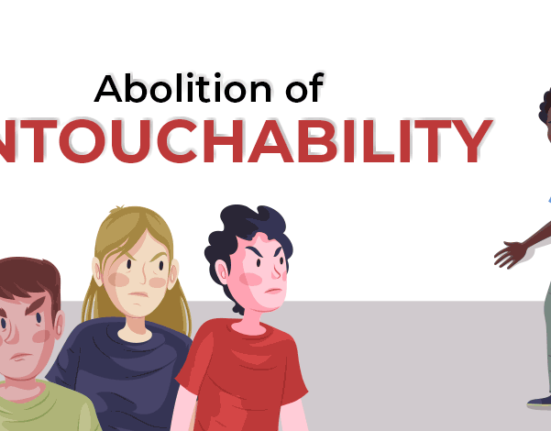Akash Ahirwar, a 4th Year Law student at Law College Dehradun has written this article explaining all about Why we need a Constitution.
Introduction
A constitution governs a nation, state, or organization by establishing a fundamental set of rules and principles. It sets the framework for how the government or organization operates and how the citizens or members interact with it. It outlines the basic structure of the government and establishes the rights and freedoms of the citizens. The Constitution is the supreme law of the land, and all other laws must conform to its provisions.
In India, the Constitution holds the status of being the supreme law of the land. It provides the framework for the functioning of the government. It also outlines the rights and duties of citizens and establishes the principles of justice, liberty, equality, and fraternity. This is the backbone of India’s democracy, and it plays a crucial role in the country’s governance.[1] Read here for more about Introduction to Indian Constitution.
But why do we need a Constitution at all?
We need a Constitution for several reasons. The reasons are listed below:
1) Protects fundamental rights
The Constitution of India guarantees fundamental rights to all citizens, such as the right to equality, freedom of speech and expression, right to education, right to life, and personal liberty. These rights are essential for the protection and development of individuals. They ensure that citizens have the power to participate in the governance of the country. For instance, the Right to Information Act, passed in 2005, empowers citizens to access information from public authorities, promotes transparency, and ensures accountability. This Act was enacted because the constitution mandated it.[2]
2) Establishes a framework for governance
The Constitution of India lays down the framework for the functioning of the government. It defines the powers and duties of the executive, legislative, and judiciary branches of government, and ensures that there is a system of checks and balances. This ensures that no one branch of government exercises excessive power and that it maintains the rule of law.
3) Ensures equality
India is a diverse country with different religions, castes, and languages. The Constitution of India ensures that every citizen is equal before the law and prohibits discrimination based on religion, race, caste, gender, or place of birth. This has been a critical factor in promoting social justice and preventing the marginalization of certain groups in society.
4) Facilitates economic development
The Constitution of India provides a legal framework for economic development. It provides for the protection of property rights, the regulation of commerce, and the establishment of a uniform tax system. This has led to the growth of the Indian economy, making it one of the fastest-growing economies in the world.
How the Constitution has shaped India’s development
India’s Constitution has played a critical role in shaping the country’s development since its adoption in 1950. Here are a few ways in which the Constitution has influenced India’s development:
1) Democratic Governance:
The Constitution established India as a democratic republic with a federal structure of government, which ensures the distribution of power across different levels of government and guarantees citizens’ right to participate in the decision-making process. This has contributed to the stability and continuity of Indian democracy, despite the challenges of diversity, poverty, and regional differences.
2) Fundamental Rights:
The Constitution provides fundamental rights to all citizens. It includes the right to freedom of speech and expression, the right to life and liberty, the right to equality, and the right to religious freedom. These rights have helped to protect the interests of marginalized and vulnerable sections of society and have been a powerful tool for social justice and equity.
3) Social and Economic Policies:
The Constitution has enabled the government to develop policies aimed at reducing poverty, promoting education, and healthcare, and ensuring social justice. The Constitution allows for the state to reserve seats in educational institutions and government jobs for historically disadvantaged and marginalized groups, and to undertake affirmative action to promote their social, economic, and political advancement.
4) Judicial Review:
It establishes an independent judiciary with the power of judicial review, which has played a significant role in upholding the rule of law, protecting individual rights, and ensuring that government actions are in line with constitutional principles.
5) Political Stability:
The Constitution has helped to provide political stability in India, despite its diverse and complex society. It has enabled the country to manage ethnic, religious, and linguistic differences through the creation of linguistic and regional states, the decentralization of power, and the recognition of minority rights.
Overall, the Constitution has been a critical factor in shaping India’s development and ensuring that the country has remained a vibrant democracy, despite its challenges
6) Universal suffrage
The Constitution of India provides for universal suffrage, which means that every citizen has the right to vote. This has ensured that India is one of the largest democracies in the world, with a vibrant and diverse political culture.
7) The Right to Education
The Right to Education, which was added to the Constitution in 2002, ensures that every child between the ages of 6 and 14 has the right to free and compulsory education. This has been a critical factor in promoting literacy and education in India, making it one of the fastest-improving countries in terms of education.
Overall, the Constitution has been a critical factor in shaping India’s development and ensuring that the country has remained a vibrant democracy, despite its challenges. It protects the rights of citizens, establishes a framework for governance, promotes equality, and facilitates economic development. Its provisions have led to the growth of India’s economy, promoted social justice, and ensured that India remains one of the largest democracies in the world. It is basically a living document that is constantly evolving, and it will continue to shape India’s development in the future
Constitutions can be categorized into several types based on their nature, structure, and origin. The most common types of constitutions are:
1) Written Constitution:
A written constitution is one that is embodied in a single document or a series of documents. It is usually the result of a deliberate and formal process of constitution-making. If you want to make any changes in the existing written constitution content intent, you can use Paraphrase online for better assist. Examples of countries with written constitutions include the United States, India, and Germany.
2) Unwritten Constitution:
An unwritten constitution is one that is not embodied in a single document but is instead based on a collection of laws, customs, and conventions. Examples of countries with unwritten constitutions include the United Kingdom and New Zealand.
3) Federal Constitutions:
A federal constitution is one that divides power between a central government and regional governments. Examples of countries with federal constitutions include the United States, Germany, and India.
4) Unitary Constitutions:
A unitary constitution is one that concentrates power in a central government and does not provide for regional governments. Examples of countries with unitary constitutions include France, Japan, and the United Kingdom.
5) Flexible Constitutions:
A flexible constitution allows for amendments or changes to be made through a simple legislative process. Examples of countries with flexible constitutions include the United Kingdom and New Zealand.
6) Rigid Constitutions:
A rigid constitution is one that requires a special process, such as a referendum or a supermajority vote, to amend or change. Examples of countries with rigid constitutions include the United States and Germany.
7) Codified Constitutions:
A codified constitution is a written document or a series of papers that is entrenched in law. It specifies the fundamental principles and rules governing the government and its citizens. Examples of countries with codified constitutions include the United States, India, and Germany.
8) Uncodified Constitutions:
An uncodified constitution is a collection of laws, customs, and conventions that form the fundamental principles and rules governing the government and its citizens. It is not written down in a single document. Examples of countries with uncodified constitutions include the United Kingdom and New Zealand.
Note that some constitutions may fall into more than one category. Additionally, some countries may have a combination of different types of constitutions.
Functions of the Constitution:
1) Establishing the Structure of Government:
One of the primary functions of a constitution is to establish the structure of government. It outlines the roles and responsibilities of the different branches of government and establishes the separation of powers. For example, the United States Constitution outlines the roles and responsibilities of the executive, legislative, and judicial branches of government. It also establishes a system of checks and balances to prevent any one branch from becoming too powerful.
2) Protecting the Rights and Freedoms of Citizens:
Another essential function is to protect the rights and freedoms of citizens. The Constitution outlines the basic human rights that the government must protect, such as freedom of speech, religion, and assembly. The Indian Constitution is an excellent example, that protects the rights and freedoms of its citizens. It guarantees freedom of religion, the right to life and liberty, and the right to equal protection under the law.
3) Limiting the Power of Government:
A constitution also limits the power of government by establishing a system of checks and balances. It ensures that no one branch of government has too much power. In addition, the government operates within the confines of the law. The German Constitution, for example, limits the power of the government by establishing an independent judiciary and a system of federalism that allows for regional autonomy.
4) Providing a Framework for Lawmaking:
It provides a framework for lawmaking by establishing the basic principles and values of a society. The Constitution provides a roadmap for making and enforcing laws. It outlines the process of creating laws and specifies how they should be enforced. The Canadian Constitution, for example, establishes the principle of parliamentary sovereignty, which means that the government is accountable to the people through their elected representatives.
5) Creating a Sense of National Identity:
Finally, it creates a sense of national identity by establishing the fundamental values and principles of a society. It provides a shared vision for the country and outlines the basic beliefs that unite its citizens. The South African Constitution, for example, establishes a society based on democratic values, social justice, and fundamental human rights.
A constitution is an essential document that outlines the basic structure of government. As well as establishes the rights and freedoms of citizens, and sets the limits of a government’s authority. It provides a framework for law-making, limits the power of government, and creates a sense of national identity. Without it, a country would be unable to function properly. Moreover, its citizens would be at risk of having their rights violated. Therefore, it is crucial that every country has a constitution that reflects the values and beliefs of its citizens.[3]
The Constitution of India is a comprehensive document laying the foundation of the country’s governance system. It is the backbone of the world’s largest democracy and provides a framework for all citizens to lead a life of dignity and equality. It ensures that every citizen is equal in front of the law, there is no anarchy of the state, and it upholds the religious diversity of India by ensuring:[4]
6) Equality before Law:
The Constitution of India is based on the principle of equality before the law. This means that the law provides equal protection to every individual, irrespective of caste, creed, gender, religion, or socio-economic status. No one is above the law, and everyone is subject to the same set of laws. Article 14 of the Constitution enshrines this principle, stating that the state cannot deny any person equality before the law or equal protection of the laws within the territory of India.
7) No Anarchy of State:
The Constitution of India ensures that there is no anarchy in the state. This means that the government is subject to the same laws and regulations as its citizens. The Constitution establishes a system of checks and balances. It ensures that no single branch of the government becomes too powerful. The three branches of the government – are the legislature, the executive, and the judiciary. These are independent of each other, and each branch has its own set of powers and responsibilities. The Constitution provides for an independent judiciary responsible for upholding the rule of law and ensuring that the government functions within the limits of the law. Article 50 of the Constitution enshrines this principle, stating that the state must take steps to separate the judiciary from the executive in the public services of the state.
8) Upholds Religious Diversity:
India is a country that is known for its religious diversity. The Constitution of India recognizes this diversity and provides for the protection of all religions. It guarantees the right to freedom of religion, which includes the freedom to practice, profess, and propagate any religion. Constitution also prohibits discrimination based on religion and ensures that everyone is free to worship as they please. It recognizes the importance of secularism in a diverse society and establishes a secular state that does not favour any particular religion. Article 25 of the Constitution enshrines this principle, stating that every person is entitled to freedom of conscience and the right to freely profess, practice, and propagate religion, regardless of their beliefs.
An example of why we need a constitution
A recent example of why India needs its Constitution is the farmer protests due to the contentious farm bills.
In 2020, the Indian government passed three controversial farm bills that aimed to liberalize the agricultural sector by giving farmers more freedom to sell their produce outside of government-regulated wholesale markets. However, the bills were met with massive protests from farmers across the country, who argued that the new laws would benefit large corporations at the expense of small farmers.
The farmers’ protests have highlighted the importance of India’s Constitution in protecting the rights and freedoms of its citizens. The Indian Constitution guarantees the right to freedom of speech and expression, the right to peaceful assembly, and the right to protest peacefully. These rights have been instrumental in allowing farmers to voice their concerns and demand that their voices be heard.
The Constitution also provides for the separation of powers between the legislative, executive, and judiciary branches of government, ensuring that no single branch of government has unchecked power. This separation of powers has been important in holding the government accountable and ensuring that it follows due process in making laws and policies.
Conclusion
In conclusion, the Constitution of India is a remarkable document that ensures the equality of all citizens before the law, upholds the rule of law, and protects the religious diversity of the country. It is a testament to the values and principles of India’s founding fathers and has stood the test of time. The Constitution provides a framework for a just and equitable society where everyone can lead a life of dignity and respect.
Frequently Asked Questions (FAQs) about Constitution
Q: What is a Constitution?
A: A Constitution is a set of fundamental principles and rules that governs a country, state or organization. It establishes the basic structure, powers, and limitations of the government, and outlines the fundamental rights and duties of the citizens.
Q: Why do we need a Constitution?
A: A Constitution serves several purposes. Firstly, it provides a framework for the organization and functioning of the government, which ensures that the powers of the government are limited and balanced and that the citizens’ rights are protected. Secondly, it establishes the rule of law, which ensures that everyone is subject to the same laws and that no one is above the law. Thirdly, it guarantees the fundamental rights and freedoms of citizens, such as freedom of speech, religion, and assembly. Fourthly, it provides a mechanism for the peaceful resolution of disputes and conflicts. Finally, it serves as a symbol of national unity and identity, and as a source of inspiration and guidance for future generations.
Q: Who benefits from a Constitution?
A: A Constitution benefits everyone in a society, including citizens, government officials, and institutions. Citizens benefit from the protections and guarantees of their fundamental rights and freedoms, as well as the stability and predictability provided by a constitutional system. Government officials benefit from clear guidelines and limitations on their powers, as well as a framework for resolving disputes and conflicts. Institutions benefit from the legitimacy and credibility conferred by a constitutional system, which enhances their ability to carry out their functions effectively and fairly.
Q: What are some examples of Constitutions?
A: Some examples of Constitutions include the United States Constitution, the Canadian Constitution, the Indian Constitution, the South African Constitution, and the European Convention on Human Rights.
Q: How is a Constitution created?
A: The process for creating a Constitution varies depending on the country or organization in question. Constitutions can be created through a constitutional convention, where elected representatives draft a new Constitution. In some cases, Constitutions are formed through a process of amendment, where existing laws and rules are revised to create a new Constitution. In all cases, the creation of a Constitution requires a broad consensus among the people or representatives involved and often involves extensive public debate and consultation.
Disclaimer: This Article is part of our Monthly article writing competition. You can also Participate
[1] https://mea.gov.in/Images/attach/Article_on_Constitution_of_India.pdf
[2] https://byjus.com/question-answer/why-do-we-need-a-constitution/
[3] https://www.thehindu.com/opinion/columns/why-we-need-a-constitution/article24361253.ece
[4] https://www.wionews.com/india-news/opinion-does-the-constitutio-of-india-fulfill-expectations-of-citizens-25338
![]()







Leave feedback about this